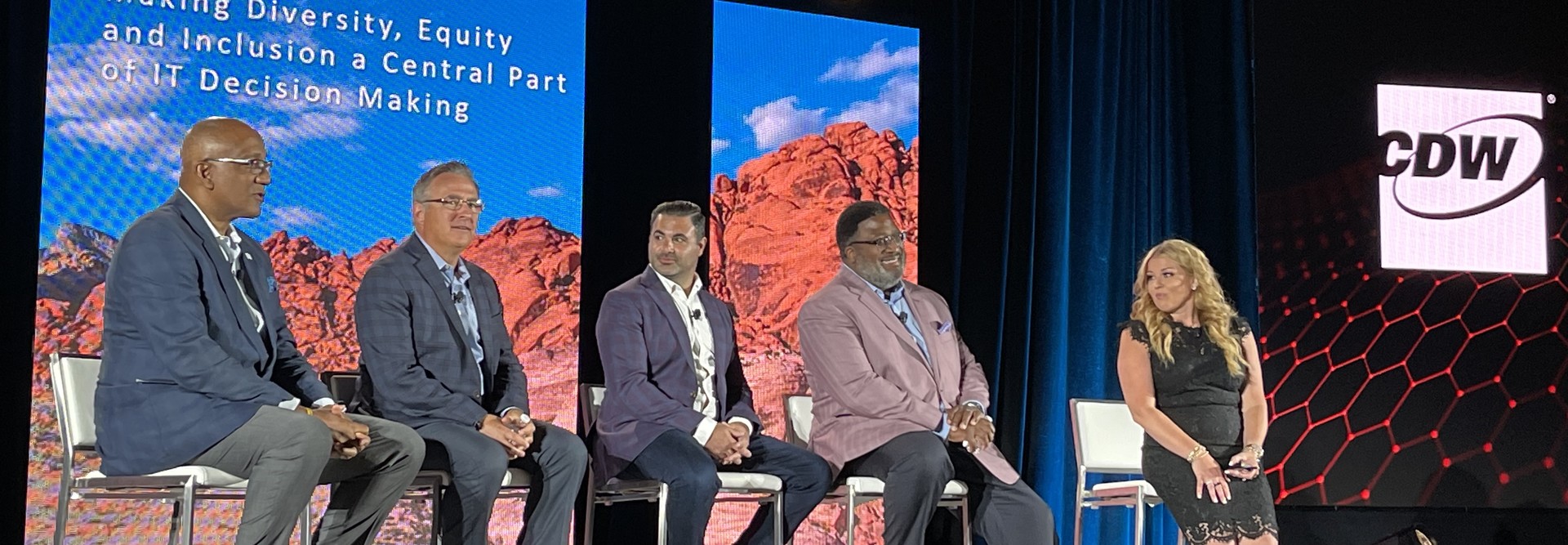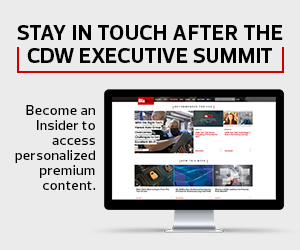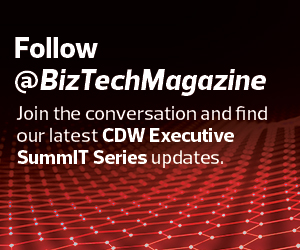Leveraging Tech Expertise for Social Impact
Amerman explained that CDW is focused on addressing digital equity, beginning with providing access to the technology itself — hardware, software and connectivity. “It's one thing to have the technology, but you also need to be able to use it. And so we focus on supporting education,” she said.
She offered three examples of how the company’s DEI initiatives have a positive impact. “The first is that it reinforces a culture of caring, giving and serving,” she explained. Such efforts also allow the company to make a positive and equitable impact in communities, and create meaningful opportunities for employee engagement and development.
“In conclusion,” she said, “social impact betters our communities, it empowers our people, and it enhances our business.”
Mensah-Bonsu spoke about the ways DEI efforts can benefit businesses and communities alike. He highlighted CDW’s Legacy Excellence Program, which partners with historically black colleges and universities to build a more equitable and diverse workforce at CDW. “We benefit from this. We are getting talent that we normally wouldn't get because we've created this mechanism to enable really good, talented, high-quality candidates into our organization.”
“You can actively participate and engage in dialogue with people who look like they don't share the same type of background as you do. And this will enable you to be a more consistent leader,” he added. “It isn't about you becoming a freedom fighter. This is you just understanding that maybe we all have privilege in this world, and how we extend that privilege, how we leverage that really speaks to who we are as an organization and society.”
READ MORE: Learn how diversity can have a positive impact on business outcomes.
Business Diversity Has Become Imperative
Malek moderated a panel on business diversity that included Ari Kessler, founder and COO of My Battery Recyclers; Farad Ali, president and CEO of Asociar; Marquis Miller, chief diversity officer for the city of Chicago; and Tad Rzonca, president and co-founder of V3Gate.
She began by acknowledging the changing expectations society has for companies. Consumers have become increasingly aware of social issues and demand the same from business leaders. “Through sustained actions, we are capable of making meaningful differences in society. While building trust, expectations have changed. What we do know is that there is overwhelming pressure around ESG and DEI, business diversity and supplier diversity.”
Miller explained that he works with Chicago’s chief small business officer to increase the amount of business the city does “with diverse suppliers across all race, ethnicity and gender categories, but also to use the city's bully pulpit, if you will, to encourage corporate Chicago to fulfill its commitment to do more business with communities that have historically not done a level of business that would allow them to build sustainability and to participate in what we call the inclusion, diversity, equity and accessibility movement.”
Ali, owner of the largest black-owned business in Texas, highlighted the impact of his company’s work with local nonprofits such as Planet Mogul, an organization that focuses on teaching kids entrepreneurial skills. “When you start talking about the trickle-down effect of doing business with diverse companies, it's not just measured in revenue, but also in economic impact.”














